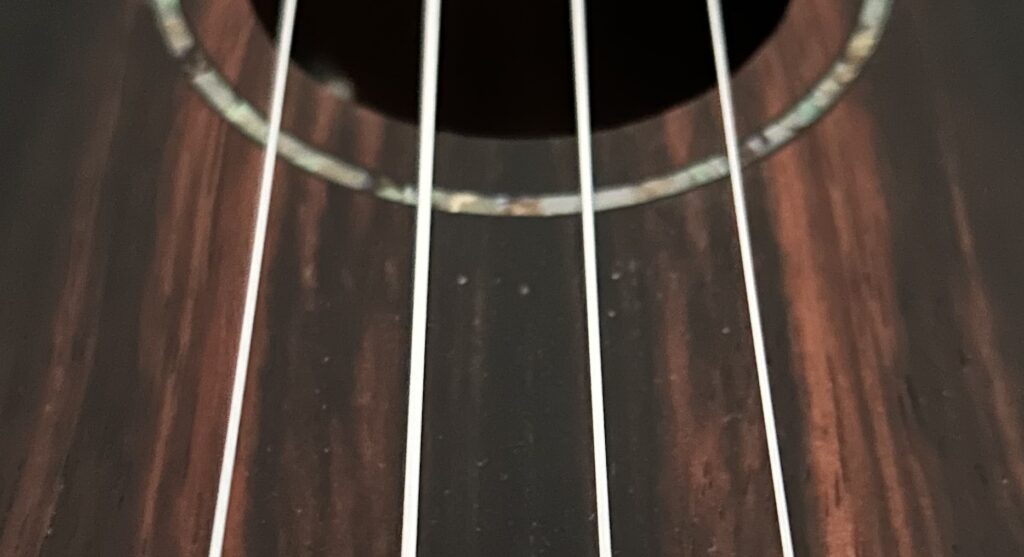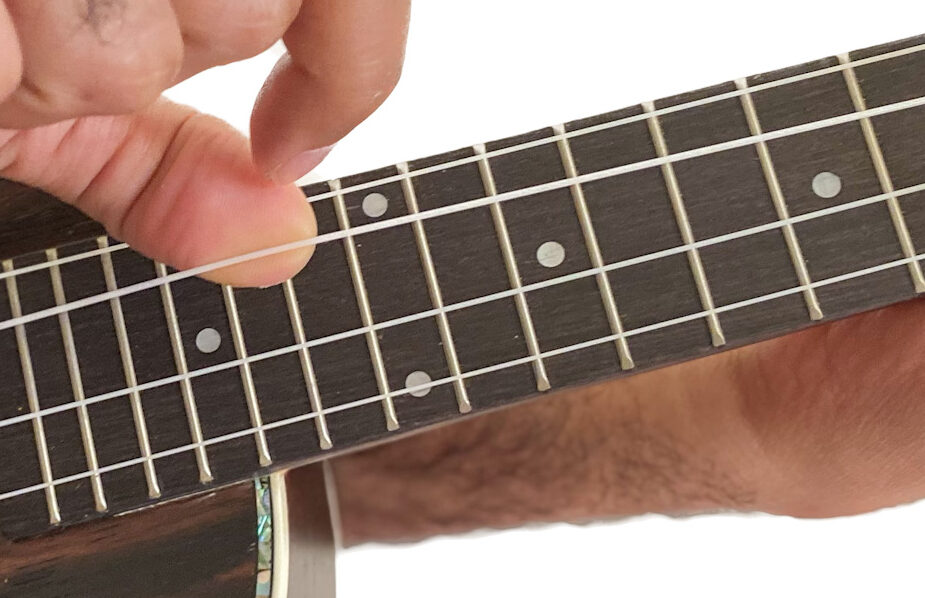Do you feel like you’re at a musical crossroads, choosing between a tenor and a concert ukulele? I was in your shoes once, and today, I’ll help you navigate this dilemma.
Tenor and concert ukuleles look similar, but they have different personalities, sizes, and sounds. In this article, I’ll explain their characteristics to help you come to a final decision in the ever-going battle of tenor vs. concert ukulele!
Tenor vs. Concert Ukulele: Which Type Is Better for You?
Below, I’ll go through each ukulele’s features one by one and tell you which is better for your skills and preferences.
Size
The most noticeable difference between a tenor and a concert uke is its size.
Tenor ukuleles are larger, with a length of 26 inches and a scale length of 17 inches. Meanwhile, concert ukuleles are merely 24 inches long with a scale length of 15 inches.
The scale length is the length between the ukulele’s nut and saddle. When it’s short, the string tension is high, which results in more bright sounds.
Because of the difference in size, tenor ukes are more challenging to play but more comfortable for big-handed people because the frets aren’t as cramped as on concert ukes.
Tuning and Number of Strings

Tenor and concert ukuleles both have four strings and use the standard ukulele tuning, which is G-C-E-A. Because of these features, you can play the same songs on them using the same skill training, and they also share chords and notes.
In other words, if you know how to play one, you can definitely play the other without any extra learning steps.
Tone
Naturally, the bigger an acoustic instrument’s body is, the fuller and more resounding the tones it produces. That’s why tenor ukuleles produce deeper tones with more volume and bass than concert ukuleles.
On the other side of the spectrum, concert ukes produce brighter tones that are closer to the traditional Hawaiian uke sound.
Keep in mind that, besides the size, a ukulele’s manufacturing material also makes a difference in the tone it produces. For instance, a concert ukulele made from premium-quality wood can produce richer tones than a poorly manufactured tenor uke.
Number of Frets

Concert and tenor ukuleles often have the same number of frets, and that’s why they use the same standard tuning. The number ranges between 15 and 20, depending on the manufacturer. The more the frets are, the higher the notes and wider range of sounds you can play, so choose accordingly.
On top of that, keep in mind that the frets of a concert uke are placed nearer to each other than those of a tenor uke, considering they have a smaller space to sit. This can make it challenging to shift between chords and notes gracefully, especially if you have large hands.
Fretboard Length
Concert ukuleles have shorter fretboards than tenors. In a concert uke, you can see the fretboard at the 12th fret, while in a tenor uke, you’ll see it at the 14th fret.
Considering that both ukuleles have the same number of frets, the extra space on tenor ukes leads to wider spaces between frets. This feature doesn’t make a difference in the sound that the uke produces, but it does dictate how comfortable you’ll be while playing.
I personally prefer concert ukuleles because I don’t have to strain my fingers too much while playing. However, some pros prefer tenor ukuleles because the extra space gives them more maneuverability to play the higher frets.
Manufacturing Materials
All types of ukuleles are made from the same manufacturing materials, which are either solid wood or laminate wood. That said, concert ukes are more famously made from mahogany wood, while tenor ukes are more associated with spruce and koa wood.
A uke’s manufacturing material affects its tones and overall playability, so you should do thorough research before you purchase to know the best material for you.
Price Range
Ukuleles come in a wide price range that goes from $50 to more than $1,000. You can find both concerts and tenors throughout this range.
However, if made from the same materials and have the same quality, you’ll find that tenor ukes are more expensive. Now, this is natural since tenors are larger, and thus need more materials during the manufacturing process.
Music Genre
Both tenor and concert ukes are perfect for playing jazz, classical, country, blues, and soul music. However, concert ukuleles shine the most when you’re playing the strumming rhythms of country music on them because of their sparkly tones.
And, tenor ukuleles perform better when playing blues and jazz pieces because of their deep sound and pure quality.
Skill Level
If you know your way around the basics of ukuleles, you’ll be able to play both tenors and concerts without an issue. That said, there are a few pointers you should keep in mind before making the final decision.
For starters, concert ukuleles are more suited for beginners. They’re smaller in size, and thus it’s easier for you to reach all the frets and play all the notes easily.
Meanwhile, you’ll need to improve your finger’s maneuverability if you plan on getting a tenor. The extra space can be challenging to control, especially if you’re at the beginning of your learning journey.
Another point to consider is that tenors produce a more dynamic range of tones, so they’re a better fit for professionals who want to challenge their skills and try new music genres.
In my opinion, you should get the concert if you’re a beginner and the tenor if you’re an expert.
The Final Verdict
Have you outgrown your soprano ukulele and feel ready for an upgrade? You can either get a concert or a tenor, depending on your skill level, budget, and personal preference.
Generally, tenor ukes are more challenging to play because they’re bigger. They’re also more expensive and produce fuller sounds. Meanwhile, concert ukes have smaller bodies that are easy to control, and they cost less because they don’t need as many manufacturing materials.
